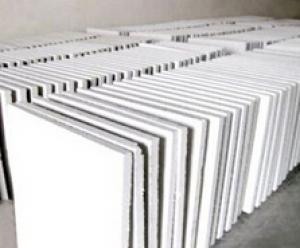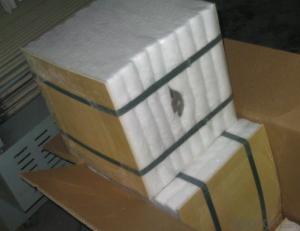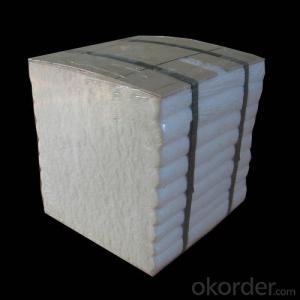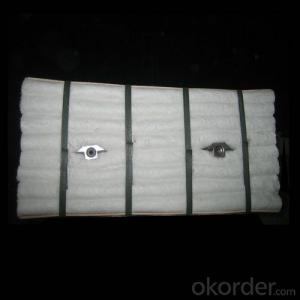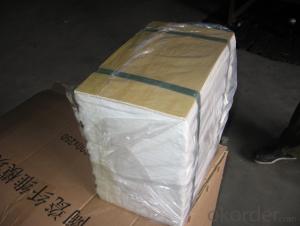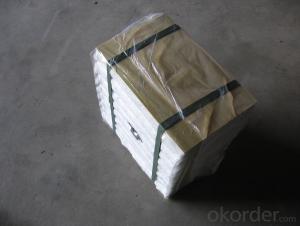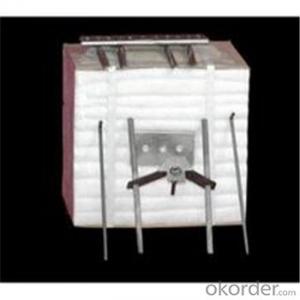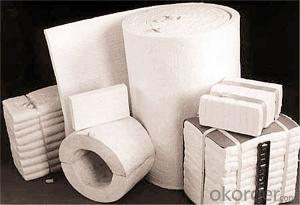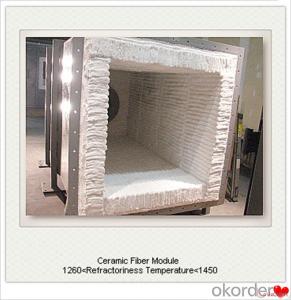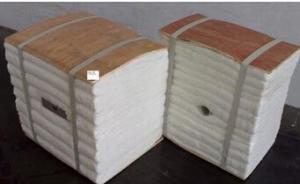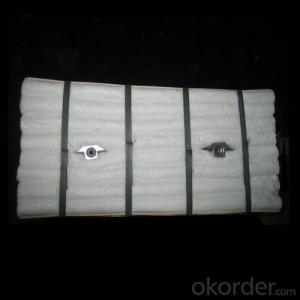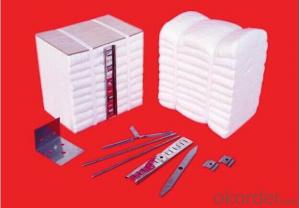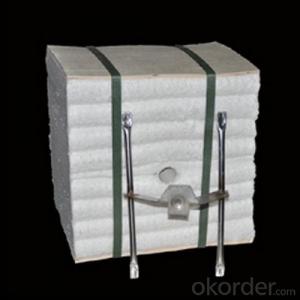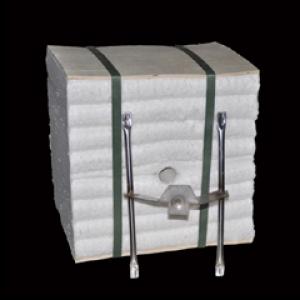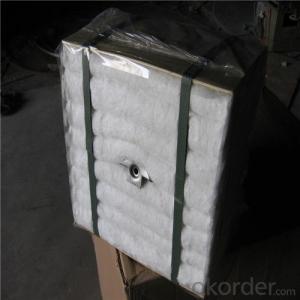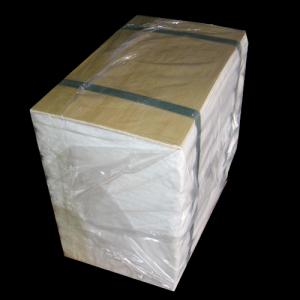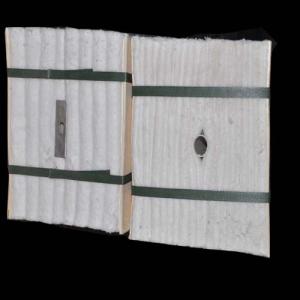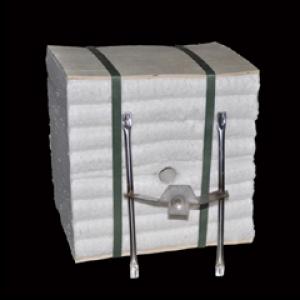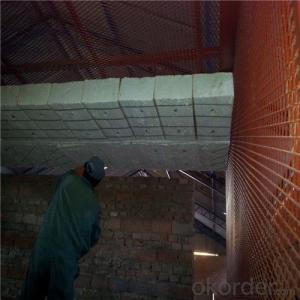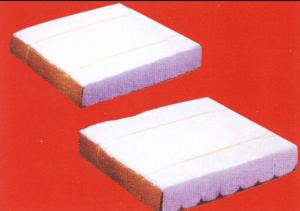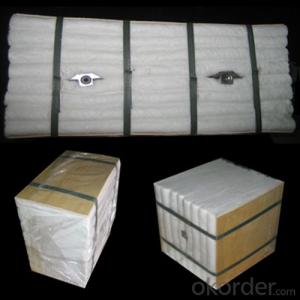Ceramic Fiber Bonded Module
- Loading Port:
- China Main Port
- Payment Terms:
- TT OR LC
- Min Order Qty:
- -
- Supply Capability:
- -
OKorder Service Pledge
OKorder Financial Service
You Might Also Like
Bonded Modules are produced from ceramic fibers, designed specially for improvement of the thermal insulation of existing industrial furnaces by cementing them on the hot face of other refractories.
CZ and CC quality bonded modules are made from blanket strips, and MX quality is made from felt strips composed of polycrystalline fibers and high alumina fiber, edge-stacked and bonded together.
Classification Temperature 1430°C, 1500°C, 1600°C
Density: 170-210kg/m3
Advantages
► Excellent thermal and physical stability
► Low thermal conductivity
► Low heat storage
► Excellent corrosion resistance
► Faster temperature cycling
► Improves furnace efficiency without replacing a serviceable refractory lining
Availabilities
► 300 x 300 x (30-100)mm
Applications
► Reheating furnaces
► Heat treatment furnaces
► Ladle cover
► Forge furnaces
► Tunnel kilns
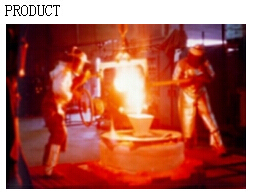
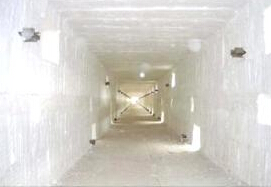
- Q: Can ceramic fibers be spun? Hope experts answer, if you are the one!
- It should be spun from cotton, spun into spun yarn, and then joined with wire or glass fiber, and then twisted into threads to make cloth or rope
- Q: Ceramic fiber plate and aluminium silicate plate are chosen as lining materials
- Ceramic fiber board is of high quality ceramic fiber cotton with low slag ball content as raw material, using specific pulp and mixing equipment, ensure the cutting length and the concentration uniformity of cotton fiber, using international advanced vacuum molding technology and international advanced processing technology, the product not only has excellent mechanical strength and precise geometry the size, and maintains the excellent properties of fibrous insulation materials, can be substituted for calcium silicate board also requires tough, self-supporting and refractory insulation field.
- Q: Ceramic fiber module or refractory brick for hot galvanizing furnace body insulation? Who gave me an analysis?
- Tile blanket thickness 30mm, (2 layers of 20mm compression), hot surface layer, ceramic fiber module thickness of 300mm, total thickness of 330mm. The ceramic fiber module adopts a standard ceramic fiber module with a temperature range of 1260.Considering that the flame sprayed by the nozzle will rebound on the outer wall of the zinc pot and form a smoke wash between the furnace wall and the zinc pot wall, the wind speed is about 18m/s to 23m/s, and there is a certain corrosion. Ceramic fiber module surface brushing two times curing agent, that is resistant to corrosion, but also can resist high wind speed.
- Q: How to install refractory fiber?
- Dry plate is used spray adhesive, mechanical compression molding, low density, has good flexibility and flexibility, generally used for insulation seal. Wet washing mold, vacuum forming board of high density, good hardness, can be processed mechanically, generally used for fire-resistant insulation.
- Q: What about the composite reflecting insulation board and ceramic fiber?
- The maximum temperature of ceramic fiber heat insulation material can be up to 1400 degrees. Although the highest use temperature of ceramic fiber is higher than that of Tianjin solid composite reflecting insulation board, the heat insulation effect is far worse.
- Q: What is the refractory temperature of the ceramic fiber cloth?
- Excellent high temperature insulation performance, long service life, corrosion resistance, aluminum, zinc and other non-ferrous metal corrosion capacity; has a good low temperature and high temperature strength;
Send your message to us
Ceramic Fiber Bonded Module
- Loading Port:
- China Main Port
- Payment Terms:
- TT OR LC
- Min Order Qty:
- -
- Supply Capability:
- -
OKorder Service Pledge
OKorder Financial Service
Similar products
Hot products
Hot Searches
Related keywords
